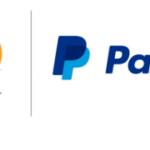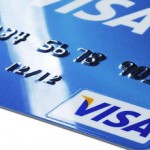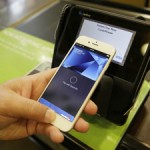Visa, MasterCard and AmEx propose a new deal for online payments

The way you pay for things with credit cards or debit cards at bricks-and-mortar retailers is a familiar, standardized process. There have been minor tweaks, like the recent adoption of chip cards or getting rid of signatures, but the experience has been fairly consistent.
Not so with online purchases. Buying things on the internet is complicated and irregular, and seems to be getting less and less secure as hackers increasingly target e-commerce and more companies adopt in-app payments.
On Wednesday, Mastercard and Visa called on the payments industry to evolve. While they announced initiatives separately, the goal was similar: The companies said their industry needed to help build a consistent experience for making purchases in the digital world.
The goal is to give consumers “the same simple, secure and convenient payment experience across every browser and every device,” said Jorn Lambert, executive vice president of digital solutions at Mastercard, in a blog post on Wednesday.
The key component of Visa and MasterCard’s rallying cry is security. Mastercard is proposing the full adoption of a technique that would mean you no longer have to send your credit card number every time you want to buy something online or through a mobile app.
Visa, MasterCard and AmEx want change
If you hate keying in your card number on your phone or if you’re wary about storing your card details with an online retailer, this is probably what you’ve been waiting for.
Don’t get too excited yet, as this is merely a call to action. There is a standards body for the payments industry called EMVCo. If that sounds vaguely familiar, it’s because chip cards are referred to as EMV cards. Last year, it proposed a framework that would standardize the way we pay for things digitally. Today, Mastercard and Visa said they would support this framework and want all other stakeholders in the payments world to get on board, too.
Visa announced it has created a program for merchants, banks and other players in the payments ecosystem intended to foster innovation. It believes the effort could simplify processes and decrease fraud.
American Express seems to be on board, too. A spokesman for the company said in an email that the company supports the exploration of a common user interface and that creating a consistent digital payment experience “is integral to the future growth of digital commerce.”
Pay it forward
“One way we envision this coming to life could be through a universal button, which we will explore with our partners through this new program,” says TS Anil, Visa’s global head of payment processing, products and solutions, in a blog post.
Perhaps you don’t feel that taking your card out of your wallet, reading the numbers and typing them into your phone or desktop is a major inconvenience, but it’s certainly an experience that stands to be improved.
Having to key in your information is the “worst experience,” says Jessica Turner, executive vice president of digital payments and labs at Mastercard. As she envisions it, this initiative means that customers will conclude payments much more easily.
“It will be the safest method, you won’t have to key in your card number and you’ll be able to do it in one or two clicks,” says Turner.
Tokens within reach
While improved convenience is great, security is the heart of the matter.
There has always been inherent risks in transmitting credit card data online, but the adoption of chip cards has significantly rerouted criminals to online channels. People who used to counterfeit cards and go on shopping sprees at Best Buy are moving online.
“While advances in EMV card technology have made life easier for consumers and card issuers, fraudsters are following the path of least resistance by shifting their attention from [point of sale] transactions to online shopping,” credit bureau Experian wrote in a recent blog post.
As a result, online shopping fraud has increased 30 percent in 2017 compared to a year earlier, Experian reports. And online commerce keeps growing. Visa said in its post that consumers spent $453.5 billion on the web for retail purchases in 2017, up 16 percent from a year earlier.
Turner says the chip card solution in the digital world is tokenization. A token is essentially a number or code that serves as a representative for your card number. Think of a username on a website that can’t be easily traced back to you. Tokenization already exists in various parts of the payments ecosystem. For instance, Apple uses a token for Apple Pay. As well, there are several companies and banks that help you create burner cards for purchases so you can limit the number of times you share your actual card number.
“We believe a token-only world is within reach,” Turner says.
Source: Bankrate – Visa, MasterCard and AmEx propose a new deal for online payments





























